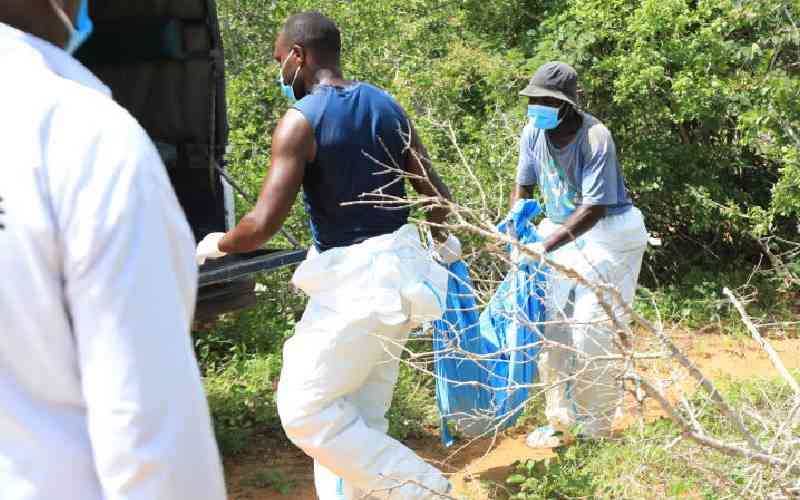×
The Standard e-Paper
Informed Minds Prefer The Standard

Audio By Vocalize

A presidential task force has made drastic proposals which could slam the doors on briefcase churches, doomsday cults and false prophets.
The Rev Mutava Musyimi-chaired team on legal and regulatory framework governing religious organisations wants the State to undertake a "radical surgery" on religions to tame runaway impunity.

